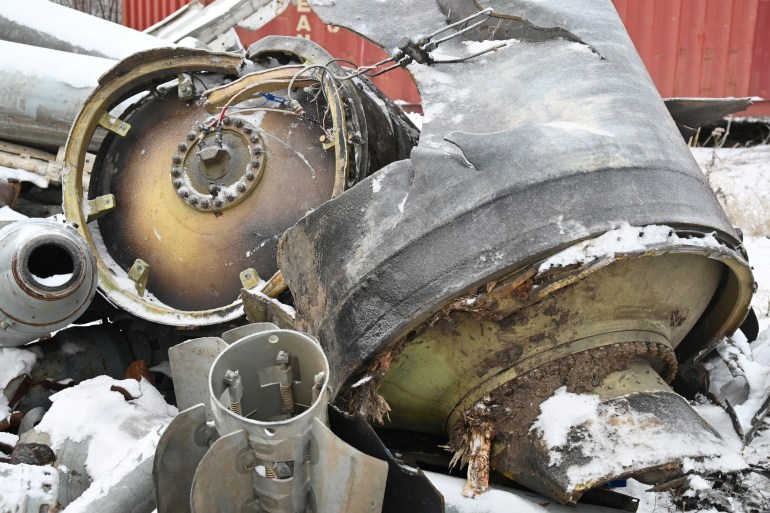Foreign ministers of nearly 50 countries say such activities breach UN sanctions on North Korea.
Dozens of countries have joined Ukraine, the United Kingdom and the United States in condemning alleged ballistic missile transfers between North Korea and Russia, which they said were in breach of United Nations sanctions.
In a joint statement, European Union foreign policy chief Josep Borrell, US Secretary of State Antony Blinken and the foreign ministers from some 47 countries including Argentina, Australia, Guatemala, Japan and South Korea, condemned the alleged arms transfers in the “strongest possible terms”, saying the weapons had been used against Ukraine on December 30 and January 2.
“The transfer of these weapons increases the suffering of the Ukrainian people, supports Russia’s war of aggression and undermines the global non-proliferation regime,” Wednesday’s statement said, noting such cooperation would also provide technical and military insights to North Korea.
“We are deeply concerned about the security implications that this cooperation has in Europe, on the Korean Peninsula, across the Indo-Pacific region, and around the world,” it said.

In a briefing earlier, US National Security Council spokesman John Kirby said Russia had since used more North Korean weapons in Ukraine, including one that landed in Kharkiv, the country’s second biggest city.
The US and its allies plan to raise the issue with the UN Security Council (UNSC) on Wednesday, he added.
The statement added that weapons procurement and supply between Pyongyang and Moscow was in breach of multiple UNSC resolutions imposed from 2006 in response to North Korea’s nuclear weapons programme.
Kremlin spokesman Dmitry Peskov declined to comment when asked about the alleged weapons transfers.
‘Most hostile’
Reports emerged as early as 2022 that Russia was planning to buy weapons from North Korea for use in its invasion of Ukraine.
In August last year, the US’s United Nations envoy Linda Thomas-Greenfield told the organisation that Moscow was negotiating “potential deals for significant quantities and multiple types of munitions”.
Speculation intensified when the countries’ two leaders held a summit the following month at the Vostochny Cosmodrome, Russia’s most important satellite launch centre.
Over some five hours, Vladimir Putin showed Kim Jong Un around the site in eastern Russia and said Moscow would help Pyongyang build satellites. Kim promised support for what he said was Russia’s “just fight”, in a comment that was viewed as being a reference to Ukraine.
Kim later toured Russian weapons factories and was shown the country’s latest military equipment.
Just two months later, North Korea announced the successful launch of its first military spy satellite, following the failure of two earlier attempts in May and August. It has said it plans to launch three more this year.
North Korea’s state-run Korean Central News Agency (KCNA) reported on Tuesday that Kim was this week visiting arms factories where he emphasised the “strategic importance of the production of major weapons”.
Kim also said the time has come to define South Korea as a state “most hostile” towards his country, according to the KCNA.
He accused Seoul of inciting confrontation and an arms buildup while urging his country to step up its military capabilities for self-defence and its nuclear war deterrent. He described worsening relations on the divided peninsula as a “new phase of change” and “unavoidable reality”.









